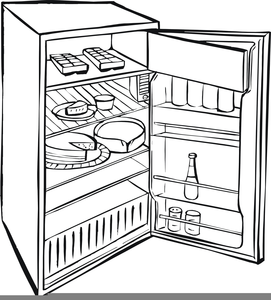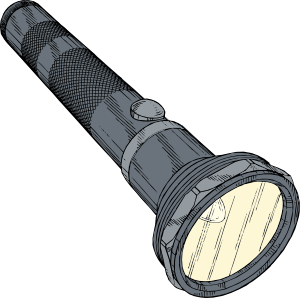Disaster Preparedness
Karragarra Island
Primary Evacuation Centre: Rural Fire Brigade, 11 Noyes Road.
To see the information specific to Karragarra Island that is in the Local Disaster Management Group Plan, please go to this site.
Macleay Island
Primary Evacuation Centre: Community Centre Hall, 32 High Central Road
To see the information specific to Macleay Island that is in the Local Disaster Management Group Plan, please go to this site.
Redland Bay
Primary Evacuation Centre: Redland Bay Community Hall, 7-9 Weinam St. (After getting off the ferry, walk along Banana St past the Jetty Store II, and cross Weinam St. )
Lamb Island
Primary Evacuation Centre: Lamb Island Pioneer Hall, 125-133 Lucas Drive
To see the information specific to Lamb Island that is in the Local Disaster Management Group Plan, please go to this site.
Russell Island
Primary Evacuation Centre: Russell Island Recreation Hall, 1 Alison Crescent
To see the information specific to Russell Island that is in the Local Disaster Management Group Plan, please go to this site.
Who Are Community Champions
Community Champions
- Are local residents who support their community during emergencies
- Provide education to the community about how to prepare for a disaster
- Respond during an emergency to set up evacuation centres
- Assist with community recovery following a disaster
- Help build community resilience to disasters
- Receive training in psychological first aid, and evacuation and volunteer management
- Become registered volunteers with Council, Australian Red Cross and Volunteering Queensland
- Contribute local knowledge and expertise to assist in all aspects of disaster management
- Are a valuable resource to the Council, emergency services and the community.
- For more information, visit the RCC Community Champions page
Community Champion Training
- Two days’ training provided by Queensland Fire and Emergency Services
Community Champions – Selection Criteria
- Be a resident with the Redland City Council area
- Be available to attend ongoing training workshops
- Be prepared to become a registered volunteer with Redland City Council, Australian Red Cross and Volunteering Queensland
- Be willing to engage with the community to provide disaster preparedness advice and assist with disaster response and recovery activities
- Be available to attend training during usual business hours
- Be eligible for a “Working With Children” Blue Card
- Open to ages over 18 years
- Please note: Community Champions do not require high standards of physical fitness, however disasters can be confronting and those selected should be prepared to confront and manage difficult situations, which require compassion and resilience.
General Disaster Preparedness
As there is a single source of water, a single source of grid power and a single method of transport to SMBI, residents need to take a serious look at their disaster preparedness. We are at a higher level of risk than mainland Australia.
There are some simple things that can be done to ensure you are as prepared as you can be for these and other situations when they occur.
1. Create an Emergency Plan
The Australian Red Cross has a number of things that will help you prepare for emergencies and disasters. The first step is to create an Emergency Plan for your household to protect what matters most. Click on this link to open the “Your RediPlan” PDF that can be filled out online, and then saved and printed.
2. Install and Configure The Get Prepared App
Another Australian Red Cross resource is their Get Prepared app that is available for both Android and iOS devices. This has the basics of the Emergency Plan including your Key 3 Contacts, Meeting Points, Important Documents, Medical Contacts, Emergency Pack List and locations of emergency information and updates.
3. Emergency Pack List
A third useful Australian Red Cross resource is their Emergency Pack List. There’s no need to be a “Doomsday Prepper” to be prepared for emergencies and disasters, and having a “go bag” ready with a list of what else needs to be added before leaving home makes a lot of sense.
4. Simple Household Preparedness Options
Food – As we’re in a location with limited access to a food supply should supply lines be cut (power, water transport, etc) it makes sense to have more than the recommended 3 days’ supply of food. My suggestion for us on SMBI has always been for at least a 7 day supply of food in the house at all times. This can include pasta, rice, tinned fruit and vegetables, powdered or dried and long life foods, formula and baby food, pet food and – very importantly – coffee. Adding one or two items per shop will allow this stock level to be built up slowly and affordably. Obviously a fruit and/or vegetable garden will help a lot here, too.
Water – It is recommended that we have 3 L of bottled or potable water per person per day on hand. For 7 days, that’s around 20 L per person. If you have tank water, make sure that you have sterilisation tablets handy. Concentrated or powdered juices and/or sports drinks are also useful, especially in hot periods to replace nutrients lost through sweat.
Cooking – As we lose power on a relatively regular basis, it is worth having some form of gas cooking available. A small portable butane stove can be purchased, along with some spare butane bottles, if your normal method of cooking is via electricity. If you have a gas barbecue already, then you’re set – if you have enough gas to last a week or so of cooking.
Hygiene – We’re all a lot more used to disinfectant wet wipes and hand sanitizer these days thanks to Covid. Making sure you’ve got sufficient stock of paper towel, toilet paper, tissues, deodorant, soap and shampoo, feminine hygiene products, household cleaning and disinfectants, and rubbish bags is recommended. A boiled kettle poured into a tub with some cold water and soap will allow for sponge baths until power is restored.
Medications – If at all possible, having more than a few days’ supply of medications is important. Having a copy of any current scripts as well as your doctor’s and chemist’s contact details is recommended.
Health Supplies – A current First Aid Kit is recommended for every house. These can be purchased at the local chemist. Additionally, adult and children’s pain killers and anti-inflammatories and cough/cold medicine, as well as face masks and protective gloves is recommended.
Pets – Please ensure you have enough food, medication and other supplies for your pets. If you need to evacuate the house, please have a quality lead (and possibly a muzzle) for your dog(s), a good carrier for your cat(s), cages appropriate for birds, and whatever other means of transportation is appropriate for other pets – and be sure to take food and water for your pets, as well as a food bowl for each animal.
Generator – Diesel/Unleaded generators can be bought locally. These are a great way to prolong the length of time fridge and freezer foods remain viable, to grind some coffee, to cook on an induction plate, to charge your phone or laptop batteries, and to run those fans on a hot summer’s day. An absolute minimum size for a generator would be 2 kVA as anything under that will struggle to run too much at once.
UPS (Battery Backup) – Any sensitive electronics should be protected by a surge suppressor, and this is often improved by the use of a UPS (uninterruptible power supply). If the UPS is sized appropriately, this can be used during night times when generator use is discouraged by charging it up from your generator.
What Emergencies or Disasters Are Likely?
The most common occurrences over recent years have been power outages, water supply outages, bushfires and storms. And a pandemic. We’ve had a number of repairs made to the water infrastructure recently, however all of the other situations, at least, are likely to occur again in the foreseeable future.
Being prepared well before these situations arise makes life a lot smoother.
Refrigerated/Frozen Foods

Use any refrigerated and frozen foods first. Opening fridge/freezer doors as little as possible will result in food items lasting longer. It is recommended that once a food product has been removed from the fridge it is consumed rather than returned – this will limit the amount of times doors are opened, and preserve the remaining food for longer. Read more at the Australian Institute of Food Safety.
In an unopened fridge, foods will remain safe for up to 4 hours.
In an unopened freezer, foods will remain safe for up to 24 hours.
If you know of an impending power outage, freezing some 3/4 filled bottles of water will help keep the freezer cold, and some can also be placed in the fridge compartment to prolong the time the food remains at a safe temperature.
If in doubt, throw it out.
Communication

Mobile Phone – Keeping your mobile phone charged and turned on at all times will ensure you are more easily able to be contacted should this be necessary. This is very handy for your friends and family to contact you, but also for you to be able to receive government alert notifications.
There are two ways government can contact people in the case of an emergency:
- By using the national Emergency Alert system which will SMS mobile phones and voice message landline phones in a geographical area when a serious emergency situation is taking place.
- By using the Redland City Council Opt-In Notification system – you can sign up to this from the Redland Coast Disaster Dashboard and clicking on the blue Opt-In Notifications button and filling in your details.
Battery or hand crank radio – Both ABC Radio Brisbane (612 AM) and Bay FM (100.3 FM) are used to give out information on current disaster and emergency situations. Battery radios are good as long as you have a supply of spare batteries (or can recharge from a UPS or generator) and hand crank radios are good for the arm muscles and also for those times when there is no other electrical supply available.
Lighting

Using candles is not recommended due to the fire risk they pose. LED torches are available at an affordable price, and keeping a supply of suitable batteries on hand will ensure they work when called upon. There are torches available that use rechargeable 18650 cells, and these should last a lot longer than a couple of AA cells. An number of such torches can be found on eBay for under $25. A rather good option, though not particularly cheap at $126 (but there is a $35 discount code: 8RDSRX2T, available at time of publishing this page), is the BLF LT1 rechargeable camping lantern that can be found here on Amazon. Another good option is a head-mounted LED torch which will leave both hands free – here is are some examples found on eBay, and one from Bunnings.
